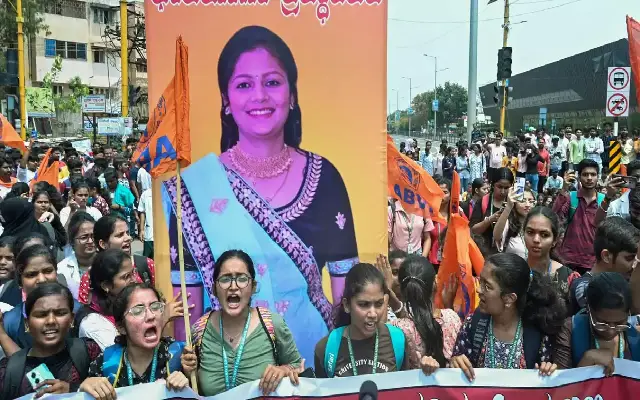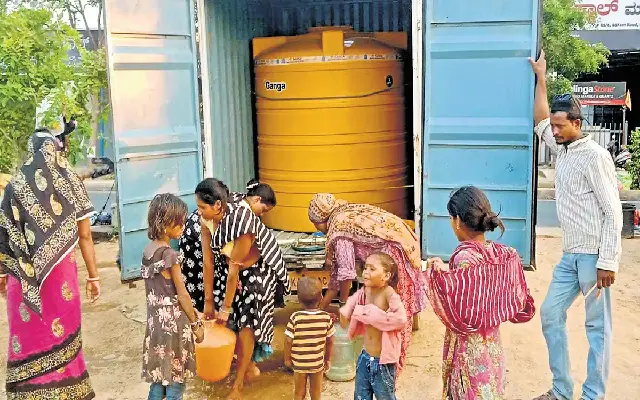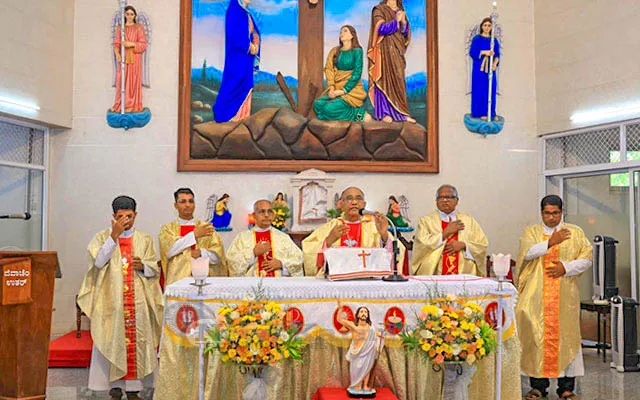 New Delhi: The Modi government paid more than double to farmers as minimum support price (MSP) for paddy and wheat as compared to the UPA government.
New Delhi: The Modi government paid more than double to farmers as minimum support price (MSP) for paddy and wheat as compared to the UPA government.
While the UPA government paid Rs 3.74 lakh crore as MSP for paddy and wheat between 2009-2014, Modi government paid Rs 8 lakh crore between 2014-2019.
In addition, the Modi government bought 74 times more pulses than UPA. The UPA government bought 1.52 lakh tons while Modi government bought 112.28 lakh tons during 2014-2019.
The Modi government gave higher MSP than earlier government and also bought more from farmers than earlier government.
“Independent India has seen many Prime Ministers but among them, Narendra Modi is unique. Before going onto win the 2014 Lok Sabha elections, he had been Chief Minister of a state for over thirteen years. As Chief Minister, Modi was known to be someone who immersed himself deeply in the intricacies of policy matters and the way they work on the ground”, as per official outreach on farmers issues.
It said among the biggest policy triumphs of his tenure as Chief Minister of Gujarat was the way he transformed the lives of farmers of a semiarid state and made them self-reliant and prosperous. Modi’s working style when it came to farmer welfare was bottom up –- his policy was driven by his deep understanding of farmers’ problems and in finding innovative win-win solutions for them. As Chief Minister, Narendra Modi was sensitive to even the smallest needs of the farmers and made the whole administrative machinery farmer-friendly.
“Clearly, the recommendations of Dr. Swaminathan for improving agriculture were being implemented in Gujarat by CM Modi even if the then government at the Centre was turning a deaf ear”, it said.
It said that even as Narendra Modi was unleashing a miracle in Gujarat, at the Centre, there was a stark contrast. They used to declare Minimum Support Price (MSP) but they never bought large quantities of produce from farmers. They declared loan waivers but those waivers never reached majority of the small and marginal farmers. They announced big schemes but these schemes almost always ended up being damp squibs. They promised subsidized fertilizers but it used to get routed to black markets rather than reaching farmers. It added convinced that only Narendra Modi can ensure a turnaround in India’s agriculture sector, farmers too voted overwhelmingly for him, making him the Prime Minister in 2014.
Bolstered by Prime Minister Narendra Modi’s personal record of working with farmers, his government has taken various decisions for farmer welfare from day one. For the first time, there was now a government led by a leader who publicly set ambitious targets — doubling farmers’ income — and inspired the whole nation. As a way of recognizing role models, some farmers were even honoured with Padma Awards.
It said that in the past six years, the Modi government has gone about reforming the agriculture domain step-by-step. At every step of the agricultural cycle, the needs of the farmers have been kept in mind. Not only were MSPs hiked multiple times but procurement at MSP also increased many times more than earlier governments did. In 2013-14, the MSP for Tur dal was Rs 4,300/quintal whereas in 2020-21, the MSP for Tur dal has been substantially increased to Rs 6,000/quintal.
If the MSP declared for Tur dal is 55 per cent higher, the procurement of pulses too has gone up almost exponentially.
During 2009-14, the UPA government procured only 1.52 LMT of pulses, whereas during 2014- 19, the Modi government procured 112.28 LMT of pulses at MSP, a 74-fold rise!
Take another example. In the 15 years preceding 2014, Sharad Pawar’s party was in power in Maharashtra, while for 10 years during this period he was also the Union Agriculture Minister. During this time, the government spent just Rs 450 crore in purchasing food grain from farmers of Maharashtra. In contrast, during 2014-19, a period of just five years, the NDA government purchased food grain worth Rs 8,500 crore, it said.
An MSP hike was announced as recently as September 2020, immediately after the pro-farmer reform bills were passed, clearly showing the intentions of the government to strengthen the MSP system even more.
Irrigation and insurance have both seen huge improvement. Direct income support was ensured for farmers through the historic PMKISAN scheme, through which money now directly reaches the bank accounts of the farmers. Cold chains, mega food parks and such agro-processing infrastructure shave been set up on a big scale. Allied activities have witnessed never before-seen focus as an avenue of income generation for farmers.
Aatmanirbhar Farmer for Aatmanirbhar Bharat is the latest wave of reforms. The latest wave of pro-farmer reforms, advocated by many experts for decades, fulfil the demands of many farmers and farmer unions. These reforms give farmers the freedom to sell anywhere and to anyone. Farmers can sell in APMC Mandis as well as outside them. Further, these reforms also strengthen farmers with a protective legal framework when dealing with buyers, ensuring they get an assured income for their produce.
These reforms have seen decades of consultations with stakeholders, multiple committees and clear cross-party consensus about the way forward. Prime Minister Narendra Modi’s track record and his government’s actions give confidence that the life of the Indian farmer is transforming for the better, with an elaborate safety net being created for farmers while also increasing their avenues of income generation. “As the nation responds to Prime Minister Narendra Modi’s call of ‘Aatmanirbhar Bharat’, Aatmanirbhar farmers will lead the way,” it said.
The issue of making agriculture profitable for farmers has been discussed and debated for decades now. Multiple committees, consultations and stakeholder reviews have been held. “But what was missing was decisive action based on these consultations. While farmers have made India extremely productive with their sweat and toil, the issue of profitability was always being sidelined because reforms in agriculture and agricultural markets never got priority,” it said.
By Sanjeev Sharma

















